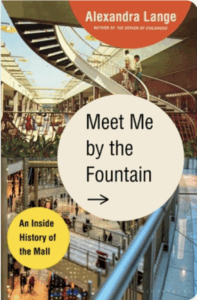After the rain

Donegal, September.
Quote of the Day
”If you want to read a perfect book there is only one way: write it.”
- Ambrose Bierce
Tried that. Didn’t work.
Musical alternative to the morning’s radio news
Little Walter | Blues With a Feeling
Long Read of the Day
The Blank Page Revolution –
Really nice essay by by Steven Johnson about the history of notebooks, a subject so dear to his heart that he led the project at Google that created NotebookLM (which IMHO is the most useful use of LLMs yet invented). He’s long been an advocate for the intellectual rewards of jotting things down, and is always worth reading.
Here’s a sample from the essay:
A few years ago, in my book Wonderland, I wrote about the astonishing flourishing of intellectual and commercial life in Baghdad during the Abbasid Caliphate, starting around the year 800 CE. The city was arguably the greatest single innovation hub on the planet at the time, a place where you could find magically lifelike automatons, oil-based streetlights, and state-of-the-art aqueducts. In Wonderland, I’d written about the legendary House of Wisdom, which was a strange hybrid of library, translation bureau, and Bell Labs-style R&D lab, where classic works from the Greco-Roman age were translated and stored in what was almost certainly the most comprehensive library in the world at that time.
This explosion of intellectual energy didn’t just appear out of thin air. The new ideas, I argued, were themselves flowing through the city along with silks and spices from the East, because Baghdad sat at the nexus of the global trade routes of the age. But I’d missed one of the key technological platforms that made all that creativity possible: the arrival of relatively cheap, mass-produced paper, an invention that had made its way west along the Silk Road from China.
The Abbasids embraced paper with an astonishing fervor, with their vast libraries and entire streets filled with booksellers, a good six centuries before Gutenberg. But these weren’t “books” in the way we think of them today. The Abbasids had mastered the codex format—binding individual sheets of paper together, just like a modern paperback, which was a massive improvement over traditional scrolls. But they didn’t have movable type. There was no way to mass-produce these texts. Every single copy had to be transcribed by hand, a painstaking process that made each volume a significant investment, even with the cheaper paper.
But there’s another branching path on that evolutionary tree: paper made casual, personal notetaking far easier and far cheaper. And that casual notetaking didn’t just stay in Baghdad…
Books, etc.

In thinking about what will be left after the AI bubble bursts, one of the images that came to mind were huge, abandoned aluminium sheds (aka data centres) filled with obsolete GPUs, which led me down an entertaining rabbit-hole about analogous obsolescent hulks in contemporary landscapes. In no time I alighted upon the story of the rise and fall of the shopping mall as told by Andrea Lange — and then to interesting conversations with colleagues about the social functions that shopping malls inadvertently played in teenage culture for quite a while. Which is how I stumbled on “Meet Me by the Blogroll”, a thoughtful meditation by an esteemed former colleague, Martin Weller, on whether the blogosphere might also have an analogous lifecycle to the mall.
Which only goes to show that T.S. Eliot was right:
We shall not cease from exploration
And the end of all our exploring
Will be to arrive where we started
And know the place for the first time.
(“Little Gidding”, Four Quartets, 1943)
This Blog is also available as an email three days a week. If you think that might suit you better, why not subscribe? One email on Mondays, Wednesdays and Fridays delivered to your inbox at 5am UK time. It’s free, and you can always unsubscribe if you conclude your inbox is full enough already!
